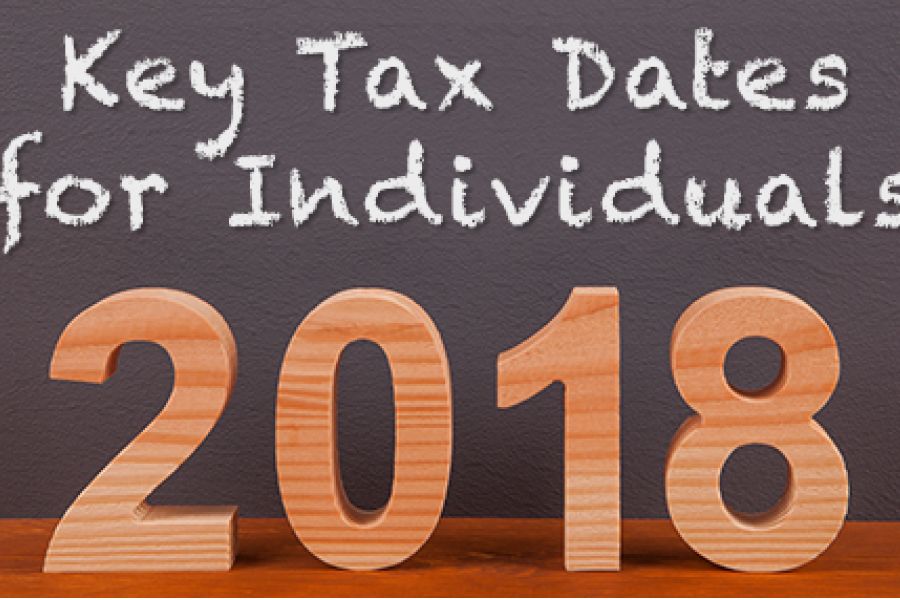What 2017 tax records can you toss once you’ve filed your 2017 return? The answer is simple: none. You need to hold on to all of your 2017 tax records for now. But it’s the perfect time to go through old tax records and see what you can discard. The 3-year and 6-year rules At minimum, keep tax records for as long as the IRS has the ability to audit your return or assess additional taxes, which generally is three years after you file your return. This means you potentially can get rid of most records related to tax returns for 2014 and earlier years. (If you filed an extension for your 2014 return, hold on to your records at least until the three-year anniversary of when...

As posted on the Peak Prosperity.com and the Chris Martenson's Peak Prosperity YouTube Channel The next twenty years will be completely unlike the last twenty years. The world is in economic crisis, and there are no easy fixes to our predicament. Unsustainable trends in the economy, energy, and the environment have finally caught up with us and are converging on a very narrow window of time-the "Twenty-Teens." "The Crash Course" presents our predicament and illuminates the path ahead, so you can face the coming disruptions and thrive--without fearing the future or retreating into denial. In this video series (and associated book) you will find solid facts and grounded reasoning presented in a calm, positive, non-partisan manner. Our money system places impossible demands upon a finite world. Exponentially rising levels...
You may have breathed a sigh of relief after filing your 2017 income tax return (or requesting an extension). But if your office is strewn with reams of paper consisting of years’ worth of tax returns, receipts, canceled checks and other financial records (or your computer desktop is filled with a multitude of digital tax-related files), you probably want to get rid of what you can. Follow these retention guidelines as you clean up. General rules Retain records that support items shown on your tax return at least until the statute of limitations runs out — generally three years from the due date of the return or the date you filed, whichever is later (four years for California). That means you can now potentially throw out...
While April 15 (April 17 this year) is the main tax deadline on most individual taxpayers’ minds, there are others through the rest of the year that you also need to be aware of. To help you make sure you don’t miss any important 2018 deadlines, here’s a look at when some key tax-related forms, payments and other actions are due. Keep in mind that this list isn’t all-inclusive, so there may be additional deadlines that apply to you. Please review the calendar and let me know if you have any questions about the deadlines or would like assistance in meeting them. June 15 File a 2017 individual income tax return (Form 1040) or file for a four-month extension (Form 4868), and pay any tax and interest...
The Tax Cuts and Jobs Act (TCJA) includes many changes that affect tax breaks for employee benefits. Among the changes are four negatives and one positive that will impact not only employees, but also the businesses providing the benefits. 4 BREAKS CURTAILED Beginning with the 2018 tax year, the TCJA reduces or eliminates tax breaks in the following areas: 1. Transportation benefits. The TCJA eliminates business deductions for the cost of providing qualified employee transportation fringe benefits, such as parking allowances, mass transit passes and van pooling. (These benefits are still tax-free to recipient employees.) It also disallows business deductions for the cost of providing commuting transportation to an employee (such as hiring a car service), unless the transportation is necessary for the employee’s safety. And it suspends...
When a company’s deductible expenses exceed its income, generally a net operating loss (NOL) occurs. If when filing your 2017 income tax return you found that your business had an NOL, there is an upside: tax benefits. But beware — the Tax Cuts and Jobs Act (TCJA) makes some significant changes to the tax treatment of NOLs. Pre-TCJA law Under pre-TCJA law, when a business incurs an NOL, the loss can be carried back up to two years, and then any remaining amount can be carried forward up to 20 years. The carryback can generate an immediate tax refund, boosting cash flow. The business can, however, elect instead to carry the entire loss forward. If cash flow is strong, this may be more beneficial, such as if the...
Classifying workers as independent contractors — rather than employees — can save businesses money and provide other benefits. But the IRS is on the lookout for businesses that do this improperly to avoid taxes and employee benefit obligations. To find out how the IRS will classify a particular worker, businesses can file optional IRS Form SS-8, “Determination of Worker Status for Purposes of Federal Employment Taxes and Income Tax Withholding.” However, the IRS has a history of reflexively classifying workers as employees, and filing this form may alert the IRS that your business has classification issues — and even inadvertently trigger an employment tax audit. Contractor vs. employee status A business enjoys several advantages when it classifies a worker as an independent contractor rather than as an employee....
- 1
- 2
- 3
- 4
- 5
- 6
- 7
- 8
- 9
- 10
- 11
- 12
- 13
- 14
- 15
- 16
- 17
- 18
- 19
- 20
- 21
- 22
- 23
- 24
- 25
- 26
- 27
- 28
- 29
- 30
- 31
- 32
- 33
- 34
- 35
- 36
- 37
- 38
- 39
- 40
- 41
- 42
- 43
- 44
- 45
- 46
- 47
- 48
- 49
- 50
- 51
- 52
- 53
- 54
- 55
- 56
- 57
- 58
- 59
- 60
- 61
- 62
- 63
- 64
- 65
- 66
- 67
- 68
- 69
- 70
- 71
- 72
- 73
- 74
- 75
- 76
- 77
- 78
- 79
- 80
- 81
- 82
- 83
- 84
- 85
- 86
- 87
- 88
- 89
- 90
- 91
- 92
- 93
- 94
- 95
- 96
- 97
- 98
- 99
- 100
- 101
- 102
- 103
- 104
- 105
- 106
- 107
- 108
- 109
- 110
- 111
- 112
- 113
- 114
- 115
- 116
- 117
- 118
- 119
- 120
- 121
- 122
- 123
- 124
- 125
- 126
- 127
- 128
- 129
- 130
- 131
- 132
- 133
- 134
- 135
- 136
- 137
- 138
- 139
- 140
- 141
- 142
- 143
- 144
- 145
- 146
- 147
- 148
- 149
- 150











